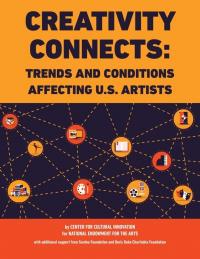The objectives of BCAA's Arts Advocacy Program are to inform the arts community about issues impacting their lives now and in the future and encourage their activism. This includes: voter registration; publicizing the value of the arts and the need for government funding, to candidates for public office, identifying their position on support for the arts, and educating the community accordingly; monitoring legislative activities; and alerting the community about the impact of pending legislation. The goal is to remain aware of legislative issues, stay in constant contact with policy makers to educate and influence their policy decisions.
Click here to subscribe to Arts Advocacy Alerts
City Council Candidate Forums
September 26, 2023
BCAA and Create Boulder co-presented a Mayoral and City Council candidates forum in response to the upcoming election's' ballot measure 2A, which will determine if tax funds are secured to invest in the arts. Candidates were asked questions to learn their views on the future of Arts & Culture in Boulder. This event took place at the Dairy Arts Center. Listen and view the forum here.
September 16, 2019
BCAA organized a forum to meet the Candidates for City Council and learn their views on the future of Arts & Culture in Boulder at the Dairy Arts Center. Our moderator for this panel discussion was Jasmine Baetz from the University of Colorado's Art and Art History Department. Listen and view the forum here.
The Community Cultural Plan
 Boulder's City Council voted unanimously in November 2015 to adopt The Community Cultural Plan! The plan launched on January 1, 2016. The City's Office of Arts and Culture is planning a celebration to roll-out the plan early in the year - stay tuned!
Boulder's City Council voted unanimously in November 2015 to adopt The Community Cultural Plan! The plan launched on January 1, 2016. The City's Office of Arts and Culture is planning a celebration to roll-out the plan early in the year - stay tuned!
Thank you to everyone who engaged in the process through surveys, conversations, convening and feedback on the drafts!
Boulder Civic Area Project
 The Civic Area concept planning and public parkland design has begun. This is the land in front of the Boulder Museum of Contemporary Art. You can share your ideas for the space and/or attend a public workshop about the process. For more information, click here.
The Civic Area concept planning and public parkland design has begun. This is the land in front of the Boulder Museum of Contemporary Art. You can share your ideas for the space and/or attend a public workshop about the process. For more information, click here.
Arts for Colorado Arts Advocacy Day
Join us for Arts for Colorado Arts Advocacy Day. AFC makes it easy for you to tell your legislators why the arts deserve to be funded. Connect and network with fellow arts advocates and learn more about innovative advocacy tools.
Usually held in March. Contact AFC for additional information about this event.
How to Talk to City Council
The best way to make your voice heard is to:
- Personalize your message
- Email all members of Council
- Write letters to the editor
- Speak to Council at their Meeting
For the City of Boulder:
Email Council as a group at: council@bouldercolorado.gov
Individual email addresses found here:
https://bouldercolorado.gov/city-council/mayor-and-city-council
Send letters to the editor at: openforum@dailycamera.com, and letters@boulderweekly.com,
Find dates, agendas and materials for upcoming Council meetings here: https://bouldercolorado.gov/city-council/city-council-meetings
On October 13, 2017, BCAA will host a Candidates Forum with the persons running for Boulder's City Council. To learn more about the candidates' view on the arts, click here.
National Endowment of the Arts Report ranks Boulder as Third in the Country for artists per capita
New National Endowment of the Arts report ranks Boulder as third in  country for artists per capita, behind Santa Fe and Los Angeles
country for artists per capita, behind Santa Fe and Los Angeles
The National Endowment for the Arts (NEA) released a report in September 2016, Creativity Connects, which examines how to address the needs of artists in a world of accelerating change. As part of this report, the NEA evaluated 367 metropolitan areas across the nation, and Boulder has ranked third for number of artists per capita, behind only Santa Fe, NM and Los Angeles, CA.
Other findings in the Creativity Connects report:
- Across America, the population of artists is growing and diversifying, and norms about who is considered an artist are changing.
- Substantial numbers of artists now work in interdisciplinary and transdisciplinary ways.
- Many artists are finding work as artists in non-arts contexts.
- Artists are pursuing new opportunities to work entrepreneurially.
- Technology is altering the context and economics of artists’ work.
- Artists share challenging economic conditions with other segments of the workforce.
- Structural inequities in the artists’ ecosystem mirror inequities in society more broadly.
- Training is not keeping pace with artists’ evolving needs and opportunities.
- Artist fellowships, grants, and awards are not responding to new ways of working.